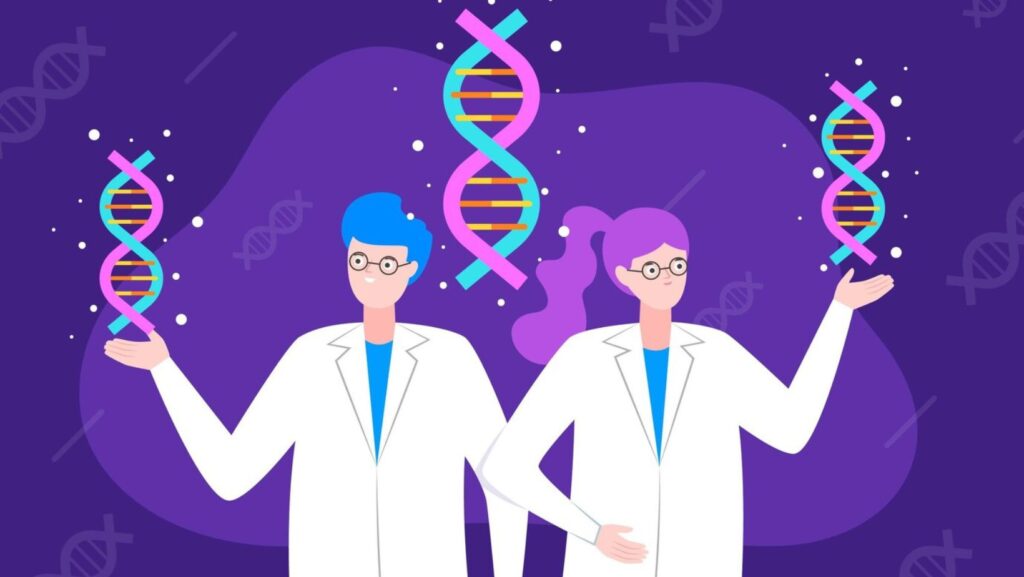New research led by UCLA Health has identified specific genes that may influence stroke recovery, potentially paving the way for more personalized treatment strategies.
The study, published in Stroke, examined how genetic variations impact a patient’s risk of cognitive decline, depression, and post-traumatic stress disorder (PTSD) following a stroke.
Predicting Stroke Recovery with Genetics

Doctors rely on factors such as a patient’s age and overall health to predict stroke recovery. However, these indicators provide only part of the picture. Dr. Steven C. Cramer, the study’s lead author and a professor of neurology at UCLA, emphasized the need for better predictive tools.
“In the big picture, the issue that we face is that when somebody has a stroke, it’s hard to anticipate what’s going to come next,” said Cramer. “People want to understand their trajectory, how well they’re going to recover, and what treatments are available.”
While past research has linked genetics to stroke recovery, most studies have focused on broad disability measures rather than specific behavioral outcomes. This study aimed to change that by analyzing genetic data alongside detailed assessments of cognitive function, depression, and PTSD symptoms in stroke patients.
Genetic Findings and Their Impact

Researchers analyzed over 700 stroke patients across the U.S., tracking their recovery for one year. They found several key genetic variants associated with different post-stroke outcomes:
- rs6265 variant: Linked to poorer cognitive recovery. This gene affects brain-derived neurotrophic factor (BDNF), a protein crucial for learning and brain plasticity. An estimated 20-30% of people have a variant that slows BDNF release, which could hinder cognitive recovery.
- rs4291 and rs324420 variants: Associated with higher risks of depression and PTSD symptoms, particularly in patients who reported experiencing more stress after their Stroke.
- rs4680 variant: Linked to lower levels of depression and PTSD symptoms, suggesting a possible protective effect.
Cramer explained that genetic predisposition isn’t the only factor—environmental stressors also influence recovery outcomes. “The more stress patients reported, the more these gene variants were associated with poorer outcomes,” he noted.
Toward More Personalized Stroke Treatment Using Genes

The study’s findings suggest that genetic testing could eventually help doctors predict stroke recovery outcomes more accurately and tailor rehabilitation strategies accordingly.
“If these discoveries are validated, you could look at someone on the day they have their stroke and say, ‘I know that on average you are at higher risk of a poorer outcome regarding cognitive function a year from now,'” said Cramer. “Maybe those are the people that need extra cognitive rehab, or maybe one day we’ll have a drug that targets certain genes receptors.”
While further research is needed to confirm the results, these insights are essential to personalized stroke care, potentially improving long-term patient outcomes worldwide.
Reference: Steven C. Cramer, Livia Parodi, Zahra Moslemi, Robynne G. Braun, Chad M. Aldridge, Babak Shahbaba, Jonathan Rosand, E. Alison Holman, Shreyansh Shah, Christoph J. Griessenauer, Nirav Patel, Christopher Anderson, Jonathan Henry, Christina Kourkoulis, David J. Lin, Natalie Zaba, Joey Gee, Johnson Moon, Julie Schwertfeger, Arun Jayaraman, Robert Lee, Maarten G. Lansberg, Stephanie Kemp, Emily Huang, Elijah Bingham, Leonel Lugo, Da Eun (Katie) Eun, Jeremy Payne, Carolynn Patten, Kwan Ng, Madelyn Cao, Ashley Jubb, Breann McGee, Ryan Shahbaba, Kunal Agrawal, Brett Kissela, Stacey DeJong, John Cole, Brian Silver, Christina Manxhari, Brett Cucchiara, Ania Busza, Jennifer Paige Hepple, Sook-Lei Liew, Susan Alderman, Jennifer Beauchamp, Nitha Joseph Mathew, Heather Hayes, Jennifer J. Majersik, Bradford B. Worrall, David Tirschwell, Cheryl Bushnell, Nada El Husseini, Jin-Moo Lee, Guido J. Falcone. Genetic Variation and Stroke Recovery: The STRONG Study. Stroke, 2024.

